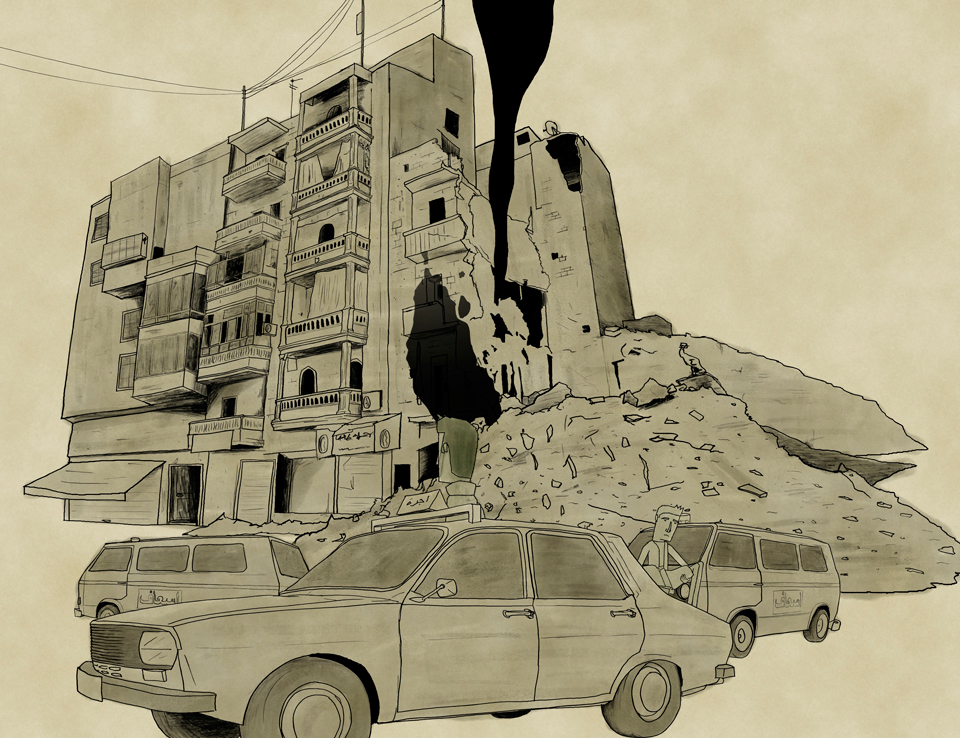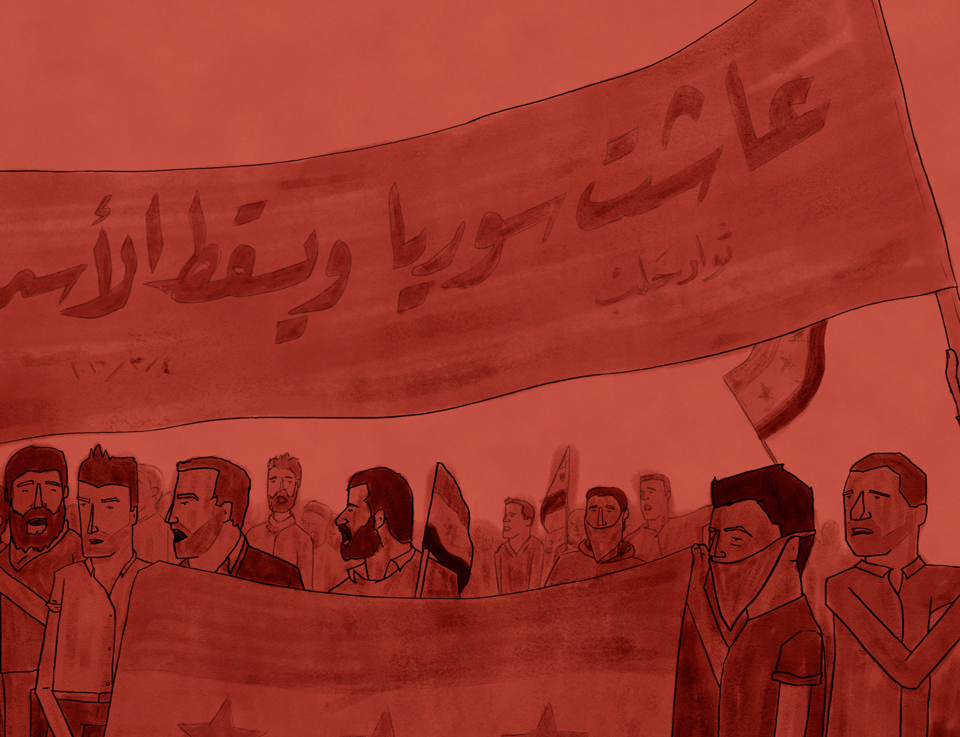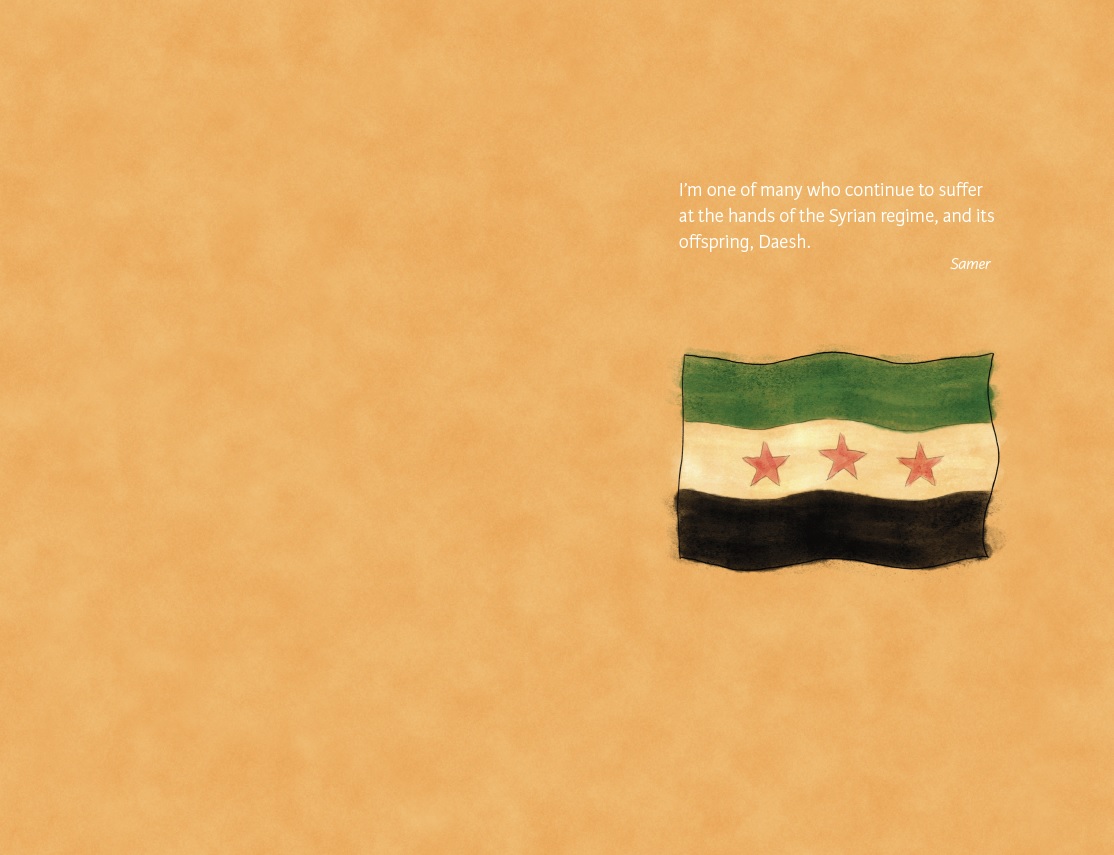- Home |
- Search Results |
- What is really happening on the streets of Syria?
Since ISIS occupied Raqqa in eastern Syria, it has become one of the most isolated and fear-ridden cities on earth.
The sale of televisions has been banned, wearing trousers the wrong length is a punishable offence, and using a mobile phone is considered an unforgivable crime.
No journalists are allowed in and the penalty for speaking yo the western media is death by beheading.
Despite this, after several months of nervy and often interrupted conversations, the BBC was able to make contact with a small activist group, Al-Sharqiya 24. Finally, courageously, one of their members agreed to write a personal diary about his experiences.
Having seen friends and relatives butchered, his community's life shattered and the local economy ruined by these hate-fuelled extremists, Samer is fighting back in the only way he can: by telling the world what is happening to his beloved city.
This is Samer's story.

It’s a nice sunny day. For the first time in ages there are no threatening sounds of planes in the air, something we have become wearily accustomed to. This cheers me up after many days of haunting depression.
I hear a man shouting at me, but I walk faster and don’t look round, trying to ignore him. I know it’s Massoud, the clerk from our local grocery shop. He’s pretty infamous. He disappeared for a while and people said that he’d joined Daesh and had gone on a training course with them.
I walk faster and faster but Massoud doesn’t give up. He starts calling my name in an ever louder voice, which attracts too much attention. In a bid to lose him, I take a quick left down a small side alley, which eventually leads to the shop where I work.
When I get there, I’m surprised to find that it’s not open yet. This is very strange. Abu-Muhammed is never late.
Now I’m worrying again about what Massoud wanted with me. I can’t take any more of this. I open up the shop and try to make myself busy.
Abu-Muhammed doesn’t show up all day. After closing the shop, I go to his house to find out what has happened. His son opens the door, and as I go in, I see that Abu-Muhammed has various relatives with him. He asks me to sit down and tells me what is going on.
His twelve-year-old nephew, Mahmoud, had been missing for ten days. Earlier, Massoud, the guy who was chasing after me this morning, turned up at his brother’s house and told him that Mahmoud had been killed whilst fighting for Daesh north of Aleppo. He had been brainwashed by Daesh and had run away from home after they’d fed him their nonsense about jihad, which has nothing to do with us. ‘God,’ says Abu-Muhammed, ‘will punish them for this.’
Shocked and saddened though I am, what I hear does not surprise me. For some time now Daesh have been sending children to the front line. It shows how desperate they have become. They are using up all their cards to keep themselves going. They always say, ‘We are applying the Sharia of Allah.’ But it’s a Sharia they have invented themselves.

I make tea, using some old textbooks as fuel to boil the water. We have had no gas to cook with for months, despite Daesh controlling most of the oilfields
The next day, I’m at work when the sound of planes becomes deafening. As usual, the Daesh fighters in the street begin panicking and running around like headless chickens. Every time they feel threatened, they lash out at us, rather than at their actual enemies flying above us.
That night, they enforce a curfew across the city, which means I won’t be able to go to Malek’s house as we had planned. I call him but he refuses to discuss over the phone whatever it was he wanted to talk to me about. He says Daesh are monitoring phone calls.
I’m starving, but my mother tells me there’s no bread. I make tea, using some old textbooks as fuel to boil the water. We have had no gas to cook with for months, despite Daesh controlling most of the oilfields. Instead of selling it to us, they export most of it to Iraq. They also sell to Assad’s regime, even though they’re supposed to be fighting them. It seems a very cosy business relationship.
Sugar is really expensive here these days, so I don’t have any in my tea.

There’s an old local saying: ‘The hungry will still be hungry, even if they eat constantly for forty years.’ Daesh aren’t capable of providing even the most basic things for us. All they do is steal the little we have. We’re the ones who are paying for them.
Another old saying is that bad things tend to come in clusters. How true this is. We’re being told to provide money to have the roads in our city cleaned. The money they are demanding is the equivalent to a whole month’s takings in the shop! They are always taking our money and adding taxes to everything. They squeeze out of us just about all we have and they keep inventing new ways to fleece us. Even the poor in this city aren’t spared. It’s as if Daesh’s goal is to find the most effective way to ruin our community before they finally leave.
The next evening, I manage to get to Malek’s house. Inside there are two young men with mobile phones. I recognise one of them. He was a regular at the anti-regime protests. I still don’t know why Malek was so insistent that I come. As I sit down, he goes out and gets his own phone. He tells me that he’s managed to get it connected to the internet. It’s a secure connection, so Daesh won’t be able to trace it.
Daesh insist that using mobile phones is a sin against God and an unforgivable crime.

What follows is a massive surprise. Malek passes me the phone and I hear Mokhles’ voice. He was one of the first revolutionaries and a very close friend. I haven’t spoken to him for ages. I managed it before by going to an internet café, but since these have become so heavily monitored by Daesh, no one uses them. He managed to escape some time ago and is living in a rural area in northern Aleppo.
He does his best to tell me all he knows about how fellow Syrians are coping, separated by the twin evils of the regime and Daesh. The Syrian Democratic Forces are the ones closest to Raqqa at the moment, but his views on them are worrying. Even though he’s experienced life under Daesh, he is very critical of the SDF. They executed his brother, and his mother died of a heart attack when she was told.
Amazingly, he says he would rather live in Raqqa under Daesh’s control than under the militia of the SDF. He warns that if they enter the city we will simply be passing from one terrible occupation to another.
This is very disappointing. I was hoping that they would liberate Raqqa and that life would become better. But I have no reason to doubt what Mokhles is telling me.
That night I go to bed with Mokhles’ words in my ears. I try to read between the lines of what he told me, looking for any glimpses of hope. Any sign that things might get better soon.